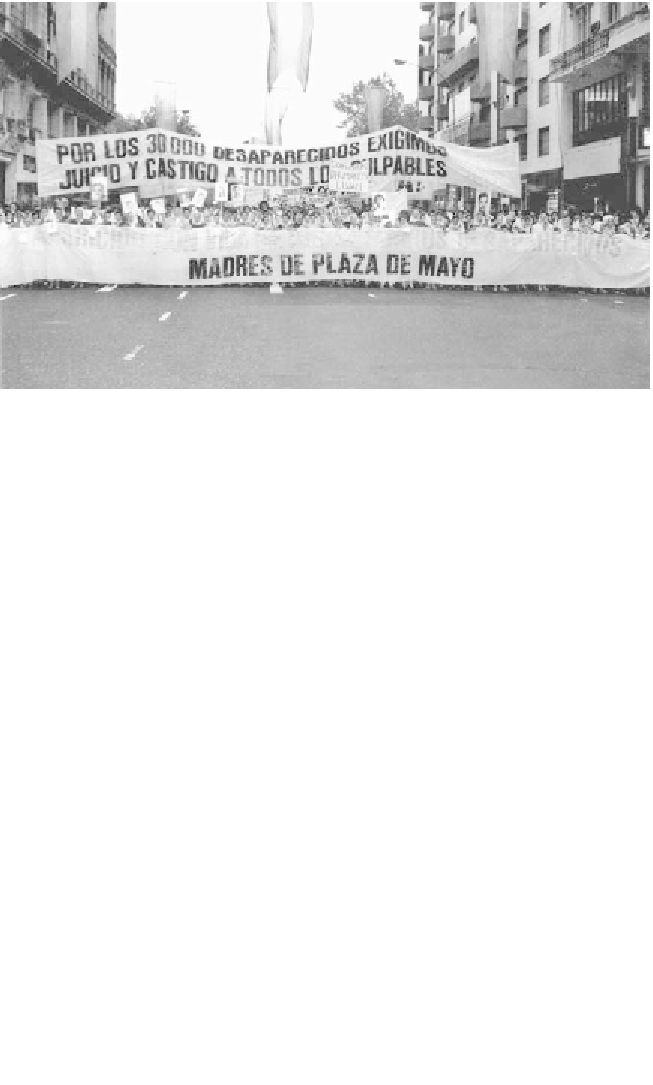Travel Reference
In-Depth Information
Mothers of the Plaza de Mayo during a rally in 1983
(Courtesy of Asociación Madres de Plaza
de Mayo)
were harder to explain away. In April 1977, a small group of these
women gathered in silent vigil in the plaza fronting the Casa Rosada.
Some passersby cursed them, and security officers threatened them.
They marched in the Plaza de Mayo every Thursday thereafter.
One of the leaders of the Mothers of the Plaza de Mayo, as the
group came to be known, Hebe de Bonafini, believed that the inter-
national press and foreign diplomatic pressure was protecting these
weekly protests, which grew with each passing month. The
NewYork
Times
and the governments of Sweden, Spain, and France stood out
in this regard. U.S. president Jimmy Carter in 1979 suspended loan
negotiations with Argentina because of the military government's
human rights abuses. Great Britain under Prime Minister Margaret
Thatcher and the administration of Ronald Reagan in the United
States, however, ignored or even applauded El Proceso. In fact, the
Central Intelligence Agency under President Reagan invited Argentine
army officers to train the first Nicaraguan counterrevolutionaries, the
contras, in 1981.
The military withstood the criticism of international human rights
groups. General Videla presided triumphantly as Argentina hosted the
international soccer championships in 1978, at which the home team
won its first World Cup. Internally, though, he and the
moderados
had to put down a rebellion of hard-liners in Córdoba, led by General



